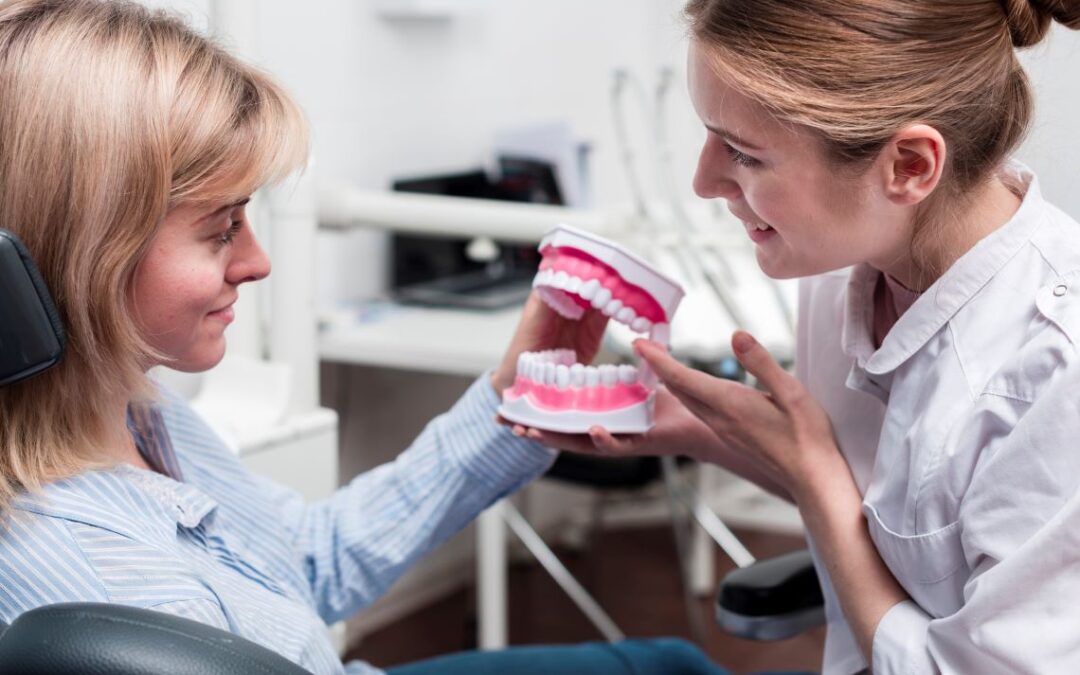Dental implants are one of the most effective solutions for replacing missing teeth. However, when considering dental implants, you may come across two main options: mini dental implants and traditional implants. While both serve the purpose of restoring your smile, they have distinct differences in terms of procedure, cost, durability, and suitability for different patients. In this article, we’ll explore the pros and cons of mini dental implants versus traditional implants to help you determine which option is best for you.
What Are Mini Dental Implants?
Mini dental implants (MDIs) are smaller in diameter compared to traditional implants. They typically measure less than 3 millimeters in width, making them ideal for patients with insufficient jawbone density. Mini implants consist of a small titanium post with a ball-shaped end, which helps anchor the replacement tooth or denture.
What Are Traditional Dental Implants?
Traditional dental implants are larger, typically ranging from 3 to 6 millimeters in width. They require a more extensive surgical procedure and a longer healing period, but they provide a highly durable and long-lasting solution for missing teeth. These implants integrate with the jawbone over time, offering strong support for crowns, bridges, or dentures.
Pros and Cons of Mini Dental Implants
Pros of Mini Dental Implants
- Less Invasive Procedure: The placement of mini implants involves a less invasive surgery compared to traditional implants, resulting in a quicker recovery time.
- Suitable for Patients with Low Bone Density: Mini implants are an excellent option for individuals with reduced jawbone density who may not be eligible for traditional implants.
- Faster Healing Time: Since mini implants require smaller incisions, they heal faster than traditional implants.
- Lower Cost: Mini dental implants are generally more affordable than traditional implants, making them an attractive option for budget-conscious patients.
- Immediate Use: In many cases, mini implants can support a prosthetic tooth on the same day of placement.
Cons of Mini Dental Implants
- Less Stability: Due to their smaller size, mini implants may not provide as much stability as traditional implants, especially for larger restorations.
- Shorter Lifespan: While still durable, mini implants may not last as long as traditional implants.
- Limited Application: Mini implants are not ideal for replacing molars or supporting large bridges due to their reduced strength.
- Potential for More Frequent Repairs: Because they are smaller, they may require more maintenance or replacements over time.
Pros and Cons of Traditional Dental Implants
Pros of Traditional Dental Implants
- Stronger and More Durable: Traditional implants provide excellent stability and can last a lifetime with proper care.
- Better for Larger Restorations: These implants can support a full bridge or even a full set of dentures.
- More Natural Feel and Function: Since they are embedded deeper into the jawbone, traditional implants offer a feel that closely mimics natural teeth.
- High Success Rate: Traditional dental implants have a success rate of over 95%, making them a reliable long-term solution.
Cons of Traditional Dental Implants
- Longer Healing Time: Traditional implants require several months for the bone to integrate with the implant.
- More Invasive Surgery: The procedure involves cutting into the gum and sometimes bone grafting, making it more complex than mini implants.
- Higher Cost: Traditional implants are generally more expensive due to the materials used and the complexity of the procedure.
- Not Suitable for Everyone: Patients with severe bone loss or certain medical conditions may not be eligible for traditional implants.
Which Option Is Right for You?
Choosing between mini dental implants and traditional implants depends on several factors, including bone density, budget, and the specific needs of the patient. If you have significant jawbone loss and want a minimally invasive procedure, mini dental implants may be the better choice. On the other hand, if you are looking for a long-term, highly durable solution and have enough bone density, traditional implants are a superior option.
Consulting an Implant Dentist Near You
When considering dental implants, consulting an implant dentist near me in Valencia can help you determine the best option based on your oral health and individual needs. A professional implant dentist will evaluate your jawbone density, discuss your treatment goals, and provide expert recommendations to ensure you get the most suitable solution.
Final Thoughts
Both mini dental implants and traditional implants offer excellent solutions for replacing missing teeth, but they cater to different patient needs. Mini implants are a great option for those seeking a quicker, less invasive, and more affordable procedure, while traditional implants provide unmatched stability and longevity.
If you are considering dental implants, reach out to an implant dentist near me in Valencia for a consultation. And in case of any dental emergencies, a Valencia emergency dentist can provide the immediate care you need. Investing in the right dental solution will not only restore your smile but also improve your overall oral health and confidence.

